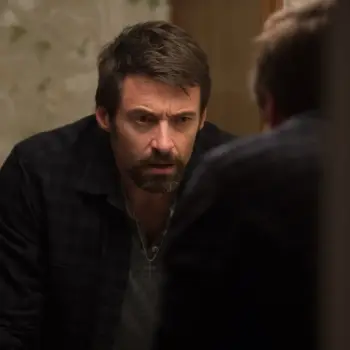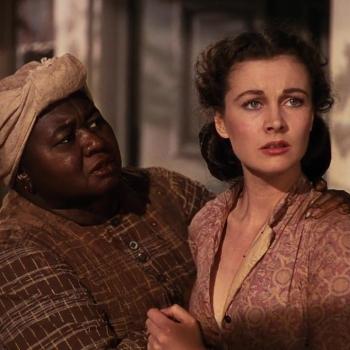
So, here’s a question: is vengeance ever justified?
The Christian outlook has a very clear, “turn the other cheek” mentality that seems to cauterize any discussion on these things, and this can potentially leave followers vulnerable. (This is something we looked out when we discussed Knives Out.) But I also think the nuances between justice, retribution, anger bear some reflection, especially as depicted in something like Emerald Fennell’s 2020 film, Promising Young Woman.
We find Cassandra “Cassie” some years after dropping out of med school as she lives a mostly hermetic existence. No friends. No boyfriends. Undemanding job. The reasons for all this become clear with time. Turns out she and her childhood best friend, Nina, were in med school together, but after Nina was sexually assaulted, and her case buried by the university, Nina committed suicide, and Cassie was never the same.
When we meet her, Cassie is spending her evenings enacting revenge on the world that drowned her best friend. She’ll lurk at bars and pose as an intoxicated woman, too drunk to help herself, and deliberately lure in predatory men who think they can take advantage of her, only to turn the tables when they get too close. She has in effect become an avenging angel.
So, there’s obviously a specific system being examined here that’s already part of its own discourse. You can read a lot of the reviews or the directors’ statements by Emerald Fennell that trace out where this fits specifically into the discussion of feminism, consent, and female representation. This piece looks a little more generally at broader ideas like revenge and how that does or doesn’t compart with Christlike perspectives.
One thing I think we need to establish upfront is what kind of revenge Cassie is even performing. For a part of the film, we are allowed to imagine that Cassandra is enacting total vengeance–that she is literally killing predatory men. Like, you half expect to find a chest full of severed heads (or testicles) under her bed or something.
But we find out before too long that her actual revenge is much meaner than that. She lets her conquests live with the knowledge that they are predators. Or at the very least, that they have the capacity to be a predator. The moment a man thinks he’s about to get away with something, she’ll spring into action and force the would-be-perpetrator to confront their own internalized misogyny. Through the course of the film, she also targets people who directly contributed to Nina’s case being buried.
And she’s actually very systematic in her approach. She’ll meet with them, confront them about their involvement, and if they have shown no repentance, she’ll put them in a position to consider how the full implications of their actions. The Dean of her college, for example, dismissed Nina, saying there wasn’t sufficient evidence. “We have to give these boys the benefit of the doubt.” But when Cassie lets her imagine that her daughter is in the same dorm room as the guys who assaulted Nina, this same Dean suddenly feels the weight of the situation.
But her program also accommodates genuine contrition when it shows itself. She extends a visit to Monroe’s lawyer, who bullied Nina into dropping her case, expecting to have to punish him as well. But with barely any coaxing, this man breaks down and confesses how haunted he has been by Nina’s case, and that of the dozens of girls he silenced as part of his job. Turns out some people do reckon with the weight of their complicity, and the last thing they need is further torture. He confides in Cassie, “I’ll never forgive myself.” And seeing how he has reckoned with his wrongdoings moves Nina to offer him some absolution instead of torment.
Even her eventual mission to take down Al Monroe, the man who raped Nina, it’s done with an eye to enact the legal consequences according to the laws of the land. Even if it is kind of fun to see bad guys squirm in their seats (and, yes, I suppose there’s a conversation to be had there as well), the revenge she is sowing is not out of some selfish desire to see her enemies suffer: Cassie is correcting the landscape and enforcing the consequences that real-life perpetrators had evaded. Sometimes that means giving people a wakeup call, sometimes that means putting predators in jail. And I don’t find myself condemning that the way we are supposed to with something like The Count of Monte Cristo.
I think in trying to decide how to live righteously in a world, it is essential to keep a peaceable spirit and not court feelings of anger. But a part of Christlike living also entails being protective of vulnerable groups and holding offenders to account, and you can do that without exercising unrighteous dominion. It all comes down to what exactly your focus is.













